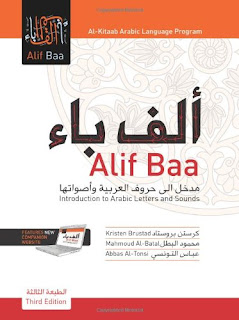Why ‘Jews’ were lost in translation in BBC Children of the Gaza War documentary
Children of the Gaza War will air on BBC Two on Wednesday nightBBC: Being Anti-Semitic is Being Anti-Israel
A BBC documentary has substituted the word “Israelis” for "Jews" in its translation of interviews with Palestinians, its maker has admitted.
Lyse Doucet has stood by the decision to translate “yahud” as “Israeli” in subtitles on her hour-long documentary Children of the Gaza War, which airs on BBC Two tonight.
The correct translation for “yahud” from Arabic to English is “Jew”.
The BBC’s chief international correspondent said that Gazan translators had advised her that Palestinian children interviewed on the programme who refer to “the Jews” actually meant Israelis.
In one instance, a Gazan child says the “yahud” are massacring Palestinians. However the subtitles read: “Israel is massacring us”.
Canada-born Ms Doucet said: “We talked to people in Gaza, we talked to translators. When [the children] say ‘Jews’, they mean ‘Israelis’.
“We felt it was a better translation of it.”
The BBC will air a show tonight, a documentary chronicling the lives of children during the Gaza war a year ago. In it, both Israeli and Palestinian children are interviewed, with one key difference. When Palestinian children say things that are unpalatable to the Western ear, the translations have been doctored.Honest Reporting: Israel’s Existence Lost in BBC Translation
One word in particular stands at the centre of this particular phenomenon: يهود, or Yahud. There is not a dictionary in existence that would not translate this word as “Jews”. The BBC have therefore taken the logical step and helpfully rendered it as “Israel”.
The maker of the 1-hour programme, Lyse Doucet, has stated that this is acceptable. She says the children didn’t mean Jews, they meant Israel. Gazan translators have assured her on this point.
Ms Doucet deserves our sympathy. Evidently, it is still harder to arouse the sympathy of the West with an anti-Semitic diatribe than an anti-Israel one — a fact for which we should certainly be thankful. Nonetheless, simply editing the words of her subjects means that Ms Doucet has not produced a documentary, but a work of fiction. It is at most “based on a true story” or “inspired by actual events”.
It wasn’t a better translation. In Arabic, Yahudi means a Jew (plural is Yahud). Yisraili means an Israeli (plural is Yisraileen). Full stop.Hamas holding two Israelis hostage in Gaza for months
Several problems came into play here.
1. The Gaza children.
A Palestinian friend told me that Palestinians commonly refer to Israelis as Yahud. It may have begun out of hostility, but has become common usage. I’m also told that more educated Palestinians sometimes do make the distinction and use the word Yisraili. This provides a window into the Beeb’s thinking, but Doucet’s not off the hook.
The kids Doucet talked to were either born after Israel disengaged from Gaza, or too young to have any memories of “the occupation.” They grew up with a purely Palestinian education and media, both of which indoctrinate kids to deny the existence of Israel.
2. The translators.
The Gaza translators the Beeb relied on are part of a bigger issue.
The Western media depends on freelance Palestinian (and Israeli) writers, photographers, and cameramen (collectively known as stringers) as well as the assistance of “fixers,” who help reporters get access, navigate the foreign land, and avoid trouble, among other things.
Stringers know the area, and employing them is a less expensive option than flying in entire reporting teams. Also, it’s not a bad thing for Big Media to provide job opportunities for the locals.
The problem is when the Palestinian support team brings its own baggage to the coverage
Two Israeli men are being held hostage by Hamas in Gaza, including one who was captured in the Strip in September after he sneaked over the border fence for unknown reasons, it was cleared for publication Thursday.
The man who has been in Gaza since September was named as Avraham Mengistu, 28, of Ashkelon. The gag order on his case was lifted Thursday morning following a lawsuit from Haaretz and Yedioth Ahronoth. The name of the second man, a Bedouin who also apparently crossed the border of his own volition, was not released.
Ethiopian-born Israeli Mengistu is alive and being kept by Hamas in Gaza, an Israeli security source said Thursday in a briefing with reporters. The source said no negotiations were currently taking place for his release.
An official said Israel does not consider the Israeli to be a captive, and that Israel was treating the matter as a humanitarian issue. The official spoke on condition of anonymity because he was not authorized to speak publicly about the matter.
Hamas denies holding Mengistu, but the Israeli sources said this was because the Islamist group is seeking to avoid responsibility for his fate.


































